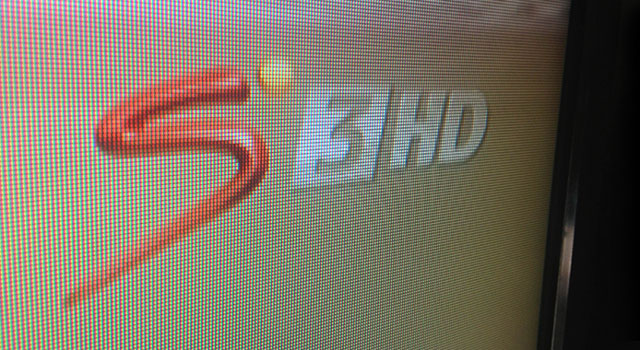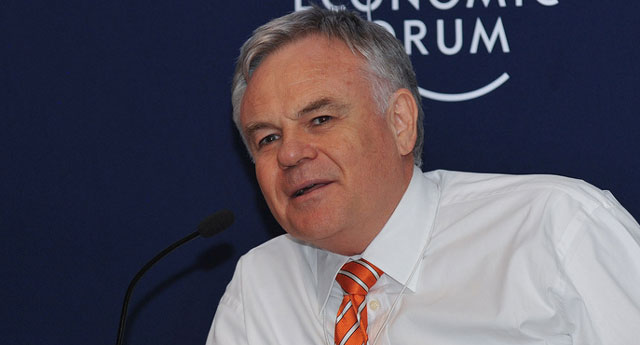
Naspers-controlled pay-TV operator MultiChoice, which owns DStv and SuperSport, may soon face a probe by South Africa’s competition authorities after rival On Digital Media (ODM), which owns TopTV, accused it of anticompetitive abuses.
TechCentral can reveal exclusively that ODM has asked that the Competition Commission refer the matter to the Competition Tribunal and for a fine be imposed on MultiChoice and/or SuperSport amounting to 10% of their annual turnover.
Commission spokesman Keitumetse Letebele says the complaint is still being processed by its screening unit. “The unit screens all complaints to ascertain if there is indeed any anticompetitive conduct. After the preliminary investigation, the unit will then write a recommendation to the commissioner either to drop the case (in the event that there are no competition concerns) or for the matter to be investigated further.”
Deputy competition commissioner Trudi Makhaya says that because ODM is a third-party complainant, the company can approach the tribunal for an interim order even while the commission is still investigating. “In most cases, third parties wait for the commission to make its decision before approaching the tribunal.”
The ODM complaint, which was lodged several months ago, has come to light for the first time just days after communications minister Dina Pule told parliament that she would issue a policy directive to the Independent Communications Authority of South Africa to address competition in the broadcasting sector by creating a “market definition” for wholesale access to premium TV content.
Regulatory intervention would undoubtedly be aimed at forcing MultiChoice, which dominates South Africa’s pay-TV landscape, to allow rival broadcasters access to premium sports and other content.
MultiChoice tells TechCentral that it has not had sight of the ODM complaint. Nor has it been contacted by the Competition Commission. “We therefore are not in a position to comment,” a spokesman says.
ODM’s TopTV, which was launched three years ago, has struggled to make headway against DStv in the pay-TV market, and in October 2012 was placed into “business rescue” under the Companies Act. China’s StarTimes recently agreed to buy a 20% stake in ODM as part of the business rescue proceedings.
There is not another sports broadcaster in the world today that enjoys a similar level of dominance to that of SuperSport. — ODM
In its complaint, ODM accuses MultiChoice and subsidiary SuperSport of anticompetitive behaviour, which it says has made it difficult for it to offer a compelling alternative to DStv, particularly the DStv Compact bouquet, which targets the same black, middle-class market.
According to ODM, MultiChoice and SuperSport have “sewn up the exclusive rights to so many international sporting events that the offerings on the various SuperSport channels are considerably in excess of what is offered by Sky Sports in the UK”.
“In the UK, the regulatory authorities have deemed Sky Sports to be a dominant sports broadcaster and they have prevented it from restricting its distribution to its own platforms,” it says.
The ODM complaint shows it requested access to SuperSport 3 and 4, which broadcast Premier Soccer League (PSL) and other football games. SuperSport secured exclusive rights to PSL matches in 2011 for a five-year period.
Although SuperSport appeared to be open, at least at first, to the idea of providing SuperSport 3 and 4 on commercial terms to ODM, it later backtracked on this, with ODM suggesting pressure had come from parent MultiChoice not to make the channels available to its rival.
“Unlike in other jurisdictions, ODM is not able to offer other products or services, such as broadband Internet, telephone calls or video on demand, that might in theory enable it to compete effectively without premium sport,” the complaint reads.
“Access to [sports] channels forms the fundamental component and driver of the commercial strategy of the broadcasters of pay-TV packages,” it continues. ODM says there is “not another sports broadcaster in the world today that enjoys a similar level of dominance to that of SuperSport”.
It has accused MultiChoice and SuperSport of contravening the Competition Act by refusing to give it access to what it believes is an “essential facility” when it was “economically feasible” for it do so.
The companies also contravened the act’s prohibition against a dominant firm engaging in an anticompetitive exclusionary act, it argues.
ODM’s submission shows that it met on a number of occasions with SuperSport and MultiChoice executives. It claims that at a meeting in November 2008, SuperSport agreed to consider supplying the SuperSport 3 and 4 channels to TopTV.
“The management of SuperSport undertook to review SuperSport’s supply agreements in order to ascertain whether there was any impediment in the way of SuperSport supplying ODM with SuperSport 3 and 4. This, together with possibly creating a new, separate sport channel specifically for ODM, was confirmed in e-mails…”

At a meeting on 5 February 2009, SuperSport denied it had agreed to evaluate the feasibility of supplying SuperSport 3 and 4 to ODM, the complaint reads. “Instead, SuperSport would only acknowledge that it had offered to supply ODM with a new sports channel. This proposed channel would be considerably inferior to SuperSport 3 and 4 and would in fact not be a premium sports channel at all,” it says.
“It would consist of mainly delayed sports events rather than live ones, and a very limited number of live football games (two per week), both of which were from a secondary league (La Liga), whose popularity in South Africa is subordinate to the PSL, the English Premier League or the Champions League. Moreover, the price proposed for supplying the secondary channel was substantial, despite containing minimal live sports content.”
Negotiations to improve the programming content of this “secondary” channel broke down and were eventually terminated, ODM says.
Talks were revived later in 2009 following a meeting between ODM then-chairman Valli Moosa and Naspers CEO Koos Bekker. “The meeting was concluded on the basis that Bekker would instruct the senior management of MultiChoice and SuperSport to assist and cooperate with the management of ODM in working out an acceptable supply agreement.”
Since SuperSport and MultiChoice are vertically integrated, there is an obvious incentive for SuperSport to protect the monopoly position enjoyed by MultiChoice. — ODM
However, at a follow-up meeting — at which ODM again tabled a proposal to buy access to SuperSport 3 and 4 — executives from MultiChoice and SuperSport adopted an “adversarial, counterproductive and obdurate” attitude. MultiChoice later rejected all of ODM’s requests made at the meeting, and mooted the idea of a revised secondary channel. This channel was “substandard and would not have enabled TopTV to compete effectively with MultiChoice’s pay-TV packages carrying premium sports channels,” the company says in the Competition Commission complaint.
However, despite its reservations, ODM agreed to accept the channel “subject to certain conditions”.
“At this juncture, ODM was two months away from the launch of TopTV. Consequently, there was a plethora of other matters that required urgent attention in order to ensure that the launch would occur in a timely fashion. As a result … ODM was compelled to accept the secondary channel, despite its reservations that this channel would not allow it to compete effectively with DStv’s Compact package.”
ODM claims the MultiChoice offer was then verbally retracted at a lunch meeting in Sandton between executives of the two companies. This was never communicated in writing, ODM says.
“Since SuperSport and MultiChoice are vertically integrated, there is an obvious incentive for SuperSport to protect the monopoly position enjoyed by MultiChoice. Such an incentive would most likely not exist were the two firms independent of one another.”
Says ODM: “MultiChoice has required or induced its supplier, SuperSport, to not deal with MultiChoice’s competitor in contravention [of the act].” — (c) 2013 NewsCentral Media
- Koos Bekker image courtesy of the World Economic Forum




